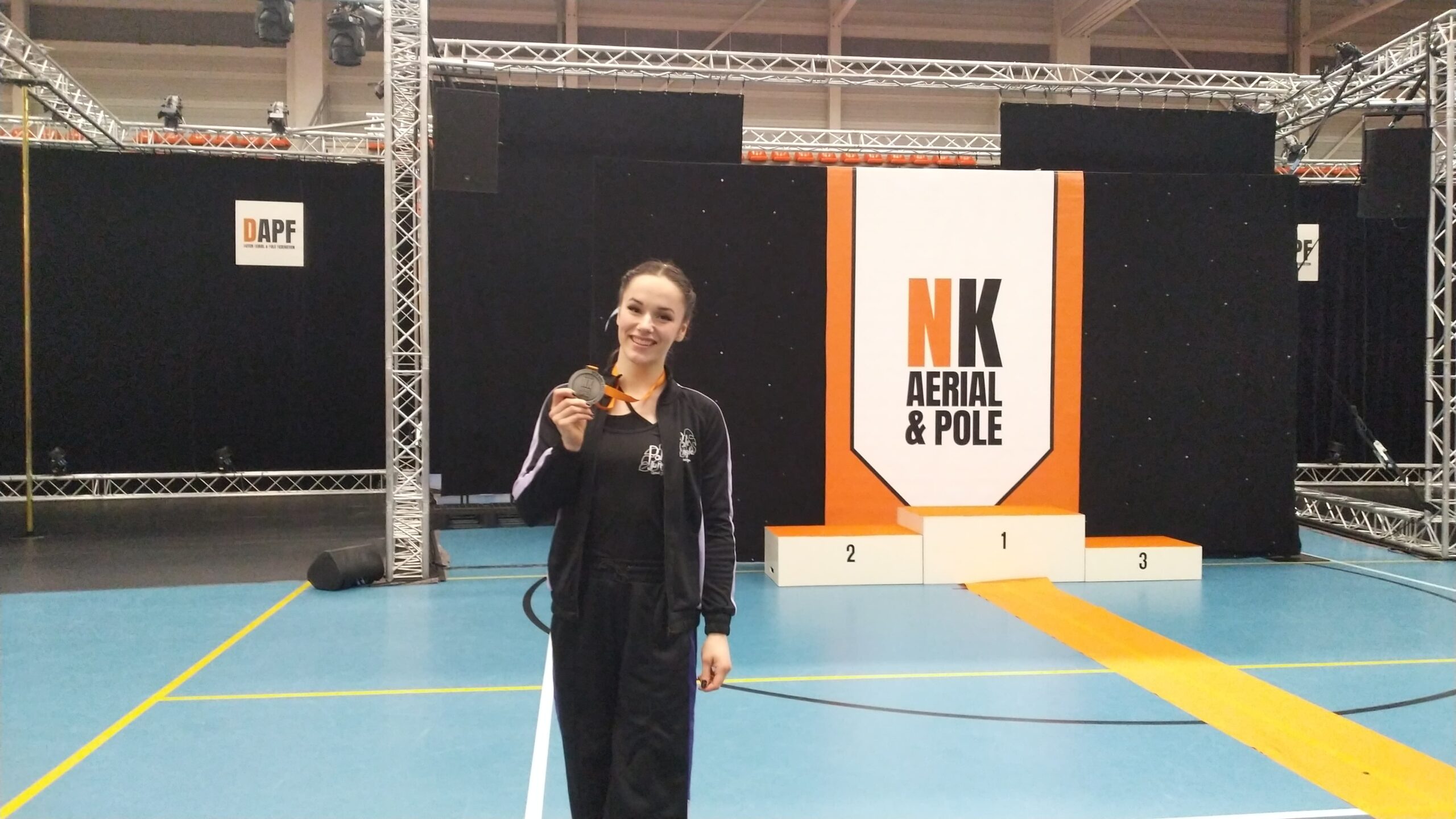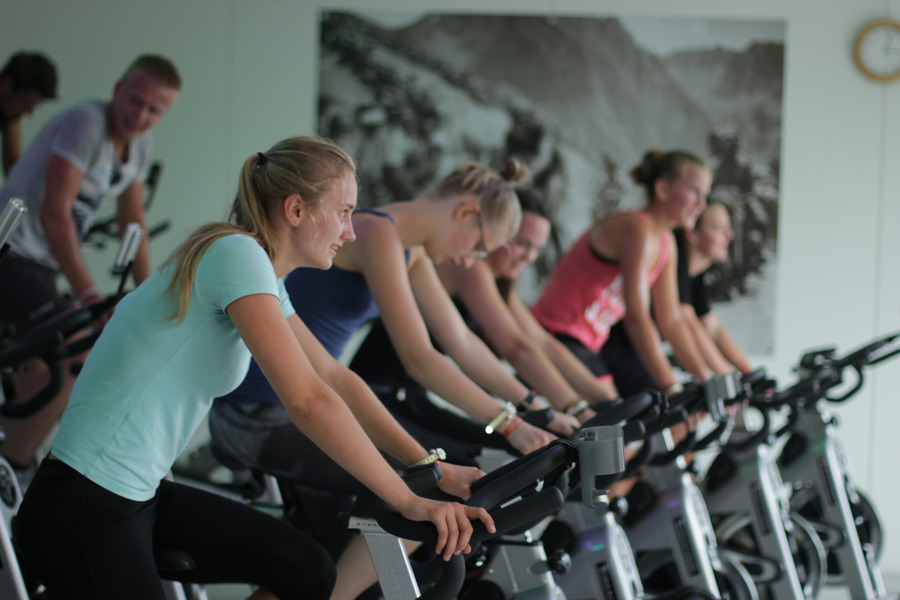Annemiek van Vleuten and Jan Willem van Schip are two familiar names of ex-WUR students who combined their studies with top sport – cycling in their case. Now too, WUR has several student athletes who are aiming for world titles and Olympic qualification.
text Rijk Dersjant
Officially, there are currently 29 Wageningen students who are also top athletes. You count as such if you can produce a ‘top sport letter’ with which you qualify for help from the university in planning and possibly postponing practicals and exams that coincide with training abroad or with competitions. Of course you don’t get that letter handed to you on a plate. Students who do an Olympic sport can be recommended to the Dutch Olympic Committee, the NOC*NSF, which assesses whether you should be given this status. For sportspeople who do a non-Olympic sport, the assessment is done by both their sports association and the university. Only students with an Olympic status have the right to financial support. At the moment, that is the case for 21 out of the 29 student top athletes at WUR.
Performing in the classroom
Top sport coordinator Henri ten Klooster, head of WUR’s Sports Centre, supports the student athletes. ‘The crux of pursuing top sport at the same time as studying is the combination of on the one hand, a sport you take to a high level, and on the other hand, a degree programme you like. There was a time when top athletes chose a degree subject that was as closely related to their sport as possible, even though they would have much preferred a different subject. The universities in the Netherland wanted to change that.’
Hoe werkt dat in de praktijk, de combinatie van topsport en studie? ‘Om colleges hoeven topsporters zich niet druk te maken. Die kunnen ze later terugzien. We helpen ze vooral met het verschuiven van practica en groepswerk’, vertelt Ten Klooster. ‘Dat ontslaat de topsporters echter niet van hun verantwoordelijkheid om zelf hun sport en studie goed te regelen. Studenten die voor hun sport naar het buitenland gaan, kunnen op afstand alsnog werken aan groepsopdrachten.’ En volgens Ten Klooster moeten topsporters aan de andere kant ook schikken in hun sport. ‘Op de momenten dat ze wél in Nederland zijn, moeten ze gemiste colleges en eventuele practica inhalen.’
Discipline
The striking thing about students in top sport is that, according to Ten Klooster, they don’t have much trouble keeping up with their studies. ‘Student top athletes have to plan well, because combining a study with top sport requires a lot of discipline. It also means finding a balance in what they can and cannot handle. That is different for every sport. Cyclists, for example, have to put many long hours into training. So athletes sometimes choose to take just one course at a time. But there are other effective ways of combining your degree with your sport. I remember the former cyclist Sanne van Paassen, who took a management course for which she set up a professional cycling team. She arranged sponsors, payments, a medical team, PR – and on top of all that she had to perform herself as number four in the world. That was very interesting to watch.’
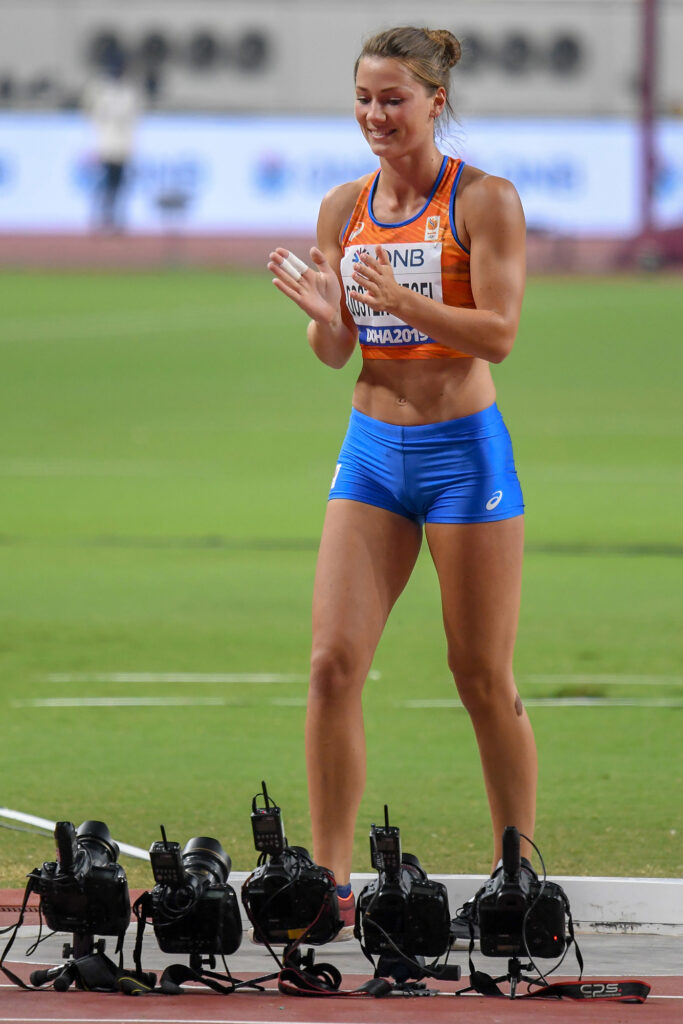
Emma Oosterwegel: ‘At the moment I would give up almost anything for athletics’
At the athletics World Cup in Qatar last summer she suddenly found herself among the world’s top athletes. The 21-year-old heptathlete Emma Oosterwegel probably surprised herself the most when she set a new personal points record and came seventh overall. ‘Only since last year have I truly realized that I can achieve top level.’
This is in sharp contract with Oosterwegel’s early days on the Bachelor’s degree programme Soil, Water, Atmosphere. Her fanaticism caused her to go through a difficult patch in both her studies and her sport. ‘I wanted to study fulltime, but I had to attend a lot of sessions on my programme. I didn’t pass all my courses and it wasn’t going well with my sport either – I got an injury.’ She decided to change her approach in her second year. ‘I started spreading my studies more. I didn’t take two courses in every period, and that made more time for athletics. I wanted to do my BSc in three years, but it wasn’t possible to do that in combination with athletics. Now I don’t worry anymore about when I will finish my degree. There’s no hurry.’
Remarkably, from then on Oosterwegel started to score more points in the heptathlon. ‘I think it’s all a question of balance, although it will always be difficult to combine top sport with studying. During one of my training programmes, for instance, I was taking a course that was very time-consuming. I could study for a couple of hours in the morning, but I found it difficult to study in that environment. It’s a lot easier to do so at the university. Luckily, keeping the balance has got easier since then.’
And nowadays, the emphasis seems to have shifted in the direction of athletics. The Olympic Games take place in Tokyo this summer, and Oosterwegel is keen to compete. ‘At the moment I’m in a good position. I’m in 15th place in the global rankings and the top 24 get invited to the Olympic Games. It’s important that I am actually placed in the coming season, though. Not that I am neglecting my studies for it, but at the moment I would give up almost anything for athletics.’
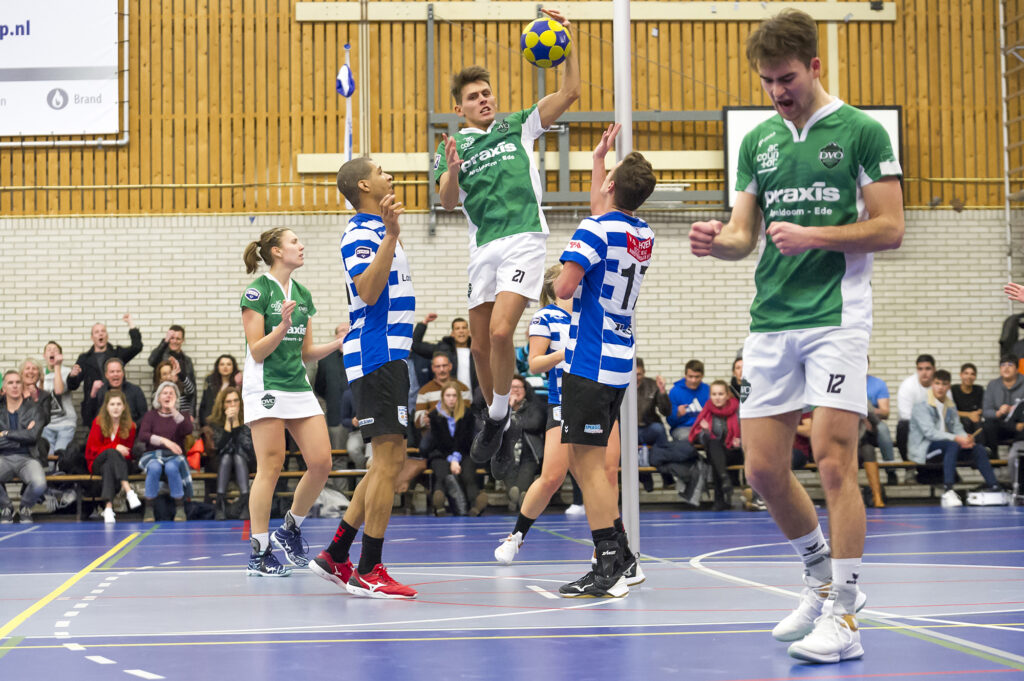
Koen van Roekel: ‘I have learned to live with that pressure’
Koen van Roekel, 21, is living proof that pursuing a sport at top level on top of a degree does not have to lead to postponing graduation. He combines his Master’s in Animal Sciences with a career as a professional korfball player. He finished his Bachelor’s degree in three years. Which is remarkable, because he says he puts his sport first.
‘In the short term, sport comes first, yes,’ says Van Roekel, who plays Korfball at the national level at DVO in Bennekom. He also enjoys NOC*NSF status because he is in the national youth team Jong Oranje. ‘I hope to have graduated in two years from now, and to be in the Dutch national korfball team. With the status of international, I should be able to make a living that way. And at the same time, I want to get some part-time experience in my field as an Animal Scientist, so I don’t end up at 30 trying to launch a career with no experience. So I do think about my future, but korfball has been a priority since my secondary school days. I just like it more.’
Van Roekel manages his time carefully. ‘I train with Jong Oranje every Monday, which means I can’t attend classes that day. I try to watch the lectures I’ve missed on Tuesdays. The training with my club is in the evenings, so that does not affect my studies. If I fall behind, I catch up during the self-study week. I don’t find it hard to motivate myself for that. In fact, for me there are a lot of performance moments. I’ve learned to live with that pressure and get good energy from it. After lectures, I often have to go straight off, although I do sometimes have time to sit on the sofa and watch a series.’ And student life? ‘Well, you often hear that it’s the best time of your life, and maybe I miss out on that a little bit. But I get top sport instead, and the discipline to keep that up comes from me.’
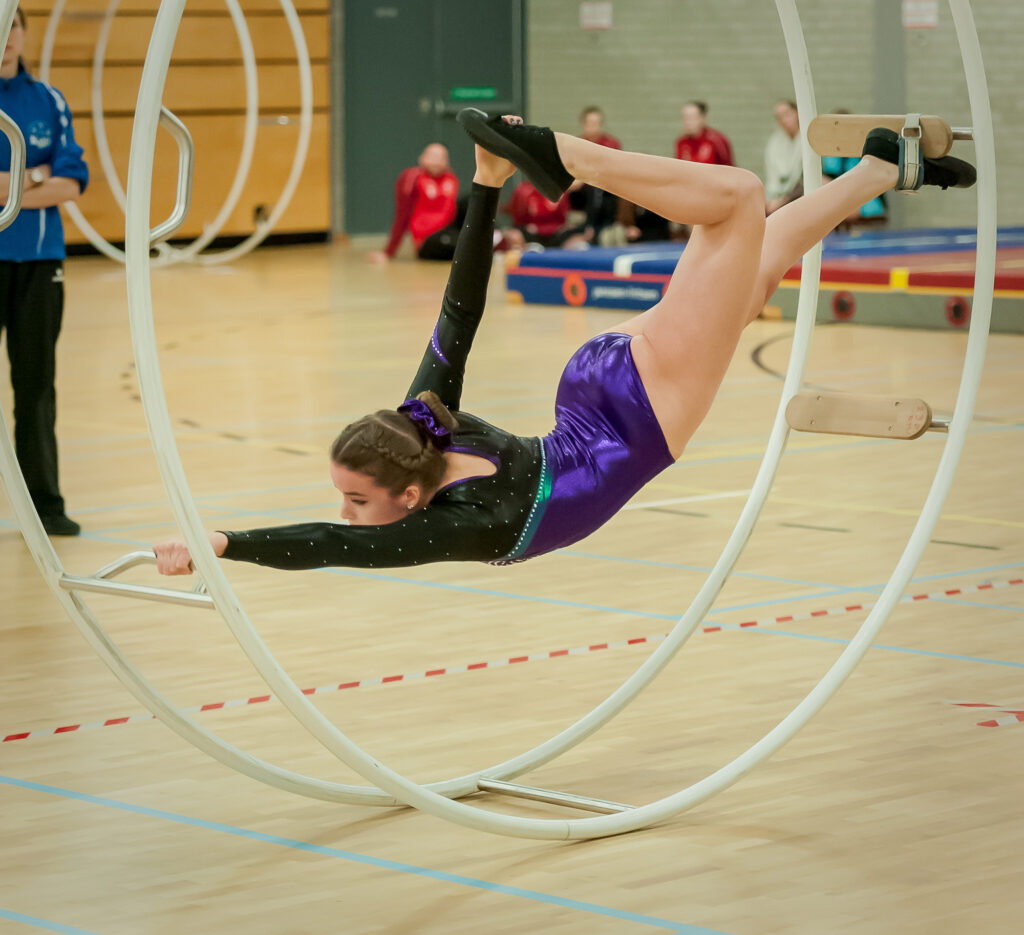
Sannah Boer: ‘I want to go on in the academic world later’
To understand 20-year-old Sannah Boer’s sport, you might need to search a bit on YouTube. She does wheel gymnastics, in which the gymnast does all sorts of exercises inside a big wheel, called a rhönrad in Germany, where the sport originated. In 2016, at the age of 16, she became world champion in the ‘spiral’ discipline. Nowadays she combines her sport with a Bachelor’s degree programme in Nutrition and Health.
She is small but bursting with energy, so much is clear as soon as you get chatting with Boer. ‘I’m a perfectionist. More a doer than a thinker,’ she says with a grin. ‘I like to get good grades, although that doesn’t always work out.’ Her perfectionism is soon obvious when she talks about her studies and her sport. ‘On the way to the World Championships in Japan I was working on a group assignment. It was nearly impossible. My training takes up a lot of time, and that makes it hard to combine my sport with my studies. Nowadays, I give less priority to my studies and I don’t let disappointments bother me. I should spend more time studying, but I can’t always give it priority. I do think that’s a real pity. Luckily my parents nudge me in the direction of my text books sometimes.’
Boer thoroughly enjoys wheel gymnastics. A friend introduced her to the wheel and within three weeks she was scouted for the national team. ‘I quickly grew to national and then international level. There are not many gymnasts who do wheel gymnastics in the Netherlands. There are far more abroad – especially in Germany. I have to fund it all myself because the sport is not sponsored. I once started a crowdfunding campaign to be able to go to the World Championships.’
It will be at a later stage that her degree subject will play a bigger role in her life. ‘I really do wheel gymnastics because it’s such fun but, partly because of aches and pains, I don’t know if I can go on doing this sport for very long. At the moment, sport comes first, but later I want to go on in the academic world.’

 Photo: Eric van Leeuwen
Photo: Eric van Leeuwen 
